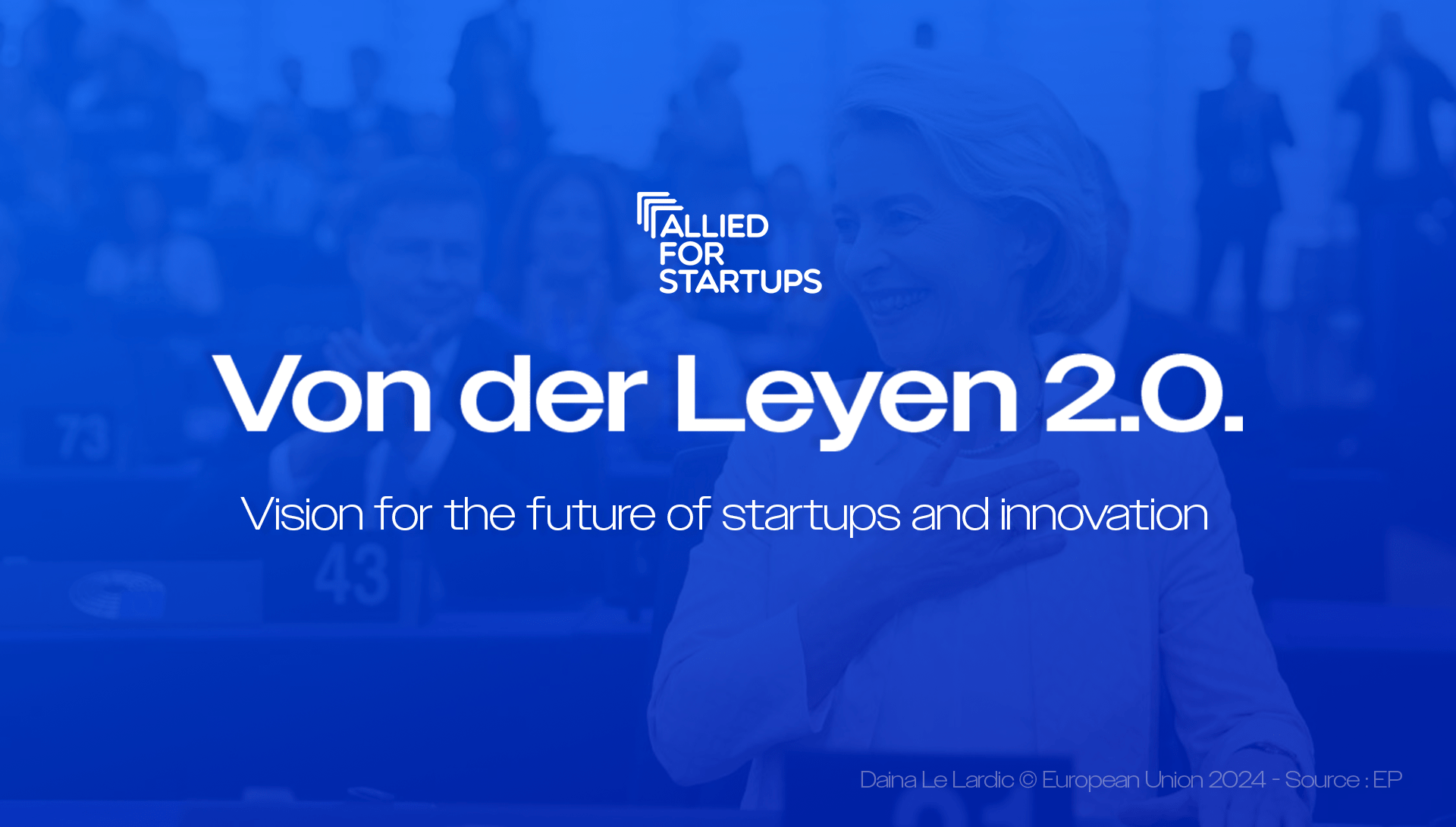Von der Leyen 2.0: Vision For the Future of Startups and Innovation
Introduction
Ursula von der Leyen has been appointed as President of the European Commission for a second term with 401 votes, setting the stage for an ambitious policy programme that will address critical challenges in competition, defence, sustainability, technology and health. Her pitch to the European Parliament outlined a clear vision of the next five years, emphasising which key areas require immediate action. Keep on reading to explore how these initiatives could transform the startup landscape.
Promise #1: Reducing burdens for startups
In her speech, von der Leyen extensively discussed how the new European Commission will aim to reduce burdens for startups. In this context, she proposed the introduction of a new EU-wide harmonised legal status for companies, in the form of a 28th regime, which would immensely help startups scale within the EU once, instead of 27 times. This measure is vital for startups and innovation in Europe, as it enables startups to scale their operations more efficiently and effectively within the EU.
Additionally, VDL outlined how she plans to ensure that regulation will not disproportionately affect startups, proposing a new competitiveness check with a focus on avoiding administrative burdens, intensified dialogue on implementation with stakeholders, including startups, and stress-tests for EU regulations to ensure proposed measures do not stifle startups and their ability to drive innovation. Her goals also include increasing financing opportunities for startups by launching a New Competitiveness Fund, to allow space for market expansion, innovation and growth across Europe.
Promise #2: Enabling startups in the tech and digital sphere
Von Der Leyen’s speech also included ambitious plans in digital and tech policy, aiming to empower startups to further their tech innovations in Europe. A major focus is on artificial intelligence, with the AI Factories initiative ensuring startups have access to the EU’s supercomputing capacity. To support this, she aims to establish an AI Research Council within the first 100 days after her appointment. Moreover, a European cyber-defense industry will be built, which provides ample opportunities for cybersecurity startups and create momentum for innovation in cybersecurity, as it is considered an integral part of the to be announced Preparedness Union Strategy that aims to make the EU and its digital infrastructure safe and secure.
Promise #3: Boosting (digital) health startups
The reelection of VDL promises significant advancements in the health sector through several strategic initiatives and legislative proposals, as highlighted through her political guidelines. Her priority is to complete the European Health Union, focusing on advancing treatments, strengthening the health systems and boosting innovation in research and development to enhance Europe’s competitiveness. Central to her vision is the introduction of a Circular Economy Act, aimed to create a sustainable pattern of production and consumption between the pharmaceutical sector and patients. The President will also be introducing the long-discussed Critical Medicines Act to address medicine and medical device shortage, including for antibiotics, insulin and painkillers.
Building on the success of Europe’s Beating Cancer Plan, von der Leyen’s health strategies will emphasise preventative care. These strategies will primarily include tackling mental health within the workplace, improving treatments for cardiovascular and degenerative diseases and advancing research on autism.
Recognising the growing health threats on public health and health systems, she plans to introduce a European action plan on the cybersecurity of hospitals and healthcare providers in the first 100 days of the mandate and increase collaboration with the Health Emergency Response Authority (HERA).
Promise #4: Improving access to talent
Another burden that European startups are facing is the difficulty in accessing skilled talent. In order for startups to thrive and continue developing their innovative solutions, having the right talent with the necessary skills is crucial. In a fast moving digital economy and society, it is evermore important for the EU’s workforce to train and develop the right skills to boost innovation in fields such as AI, cybersecurity, and quantum computing. To address this, the Commission will focus on investing in skills development and retention. Moreover, von der Leyen also announced plans to ensure pan-EU recognition of skills training and to establish a harmonised European degree. This will make it easier for startups to hire employees that possess the right knowledge and skills, allowing them to quickly onboard employees without being delayed by bureaucratic procedures to get their degrees recognized in another EU member state.
Conclusion
The European Commission’s plans under Ursula von der Leyen promise a bright future for startups by fostering an enabling policy ecosystem. Initiatives such as the AI Research Council and the New Competitiveness Fund aim to enhance supercomputing capacity and financial opportunities for startups, while streamlining legal status and reducing regulatory burdens. These priorities will facilitate easier scaling across the EU and boost competitiveness. Furthermore, advancements in digital and health sectors, alongside efforts to improve talent access, position the EU as a fertile ground for innovation and startup growth.

